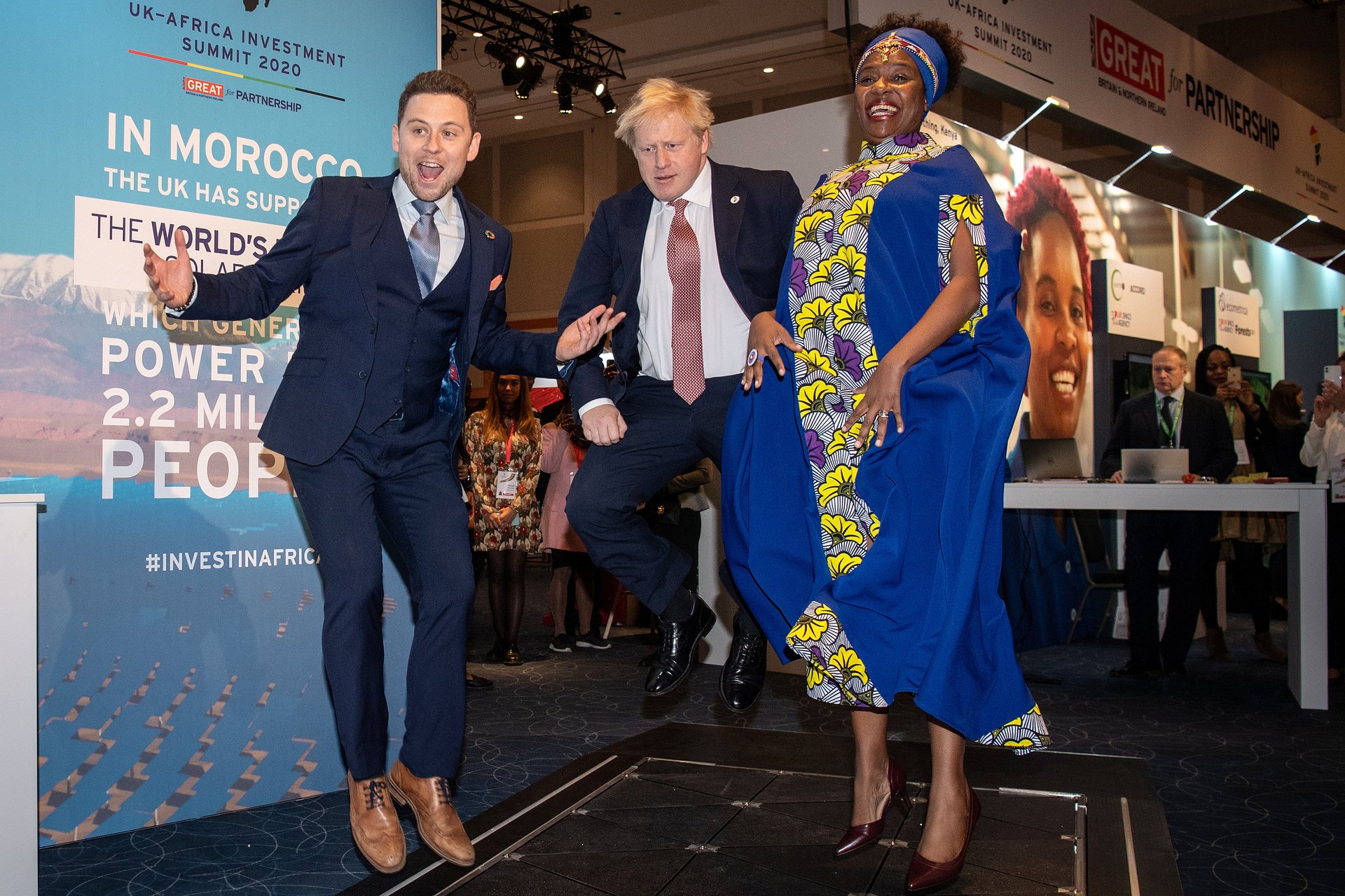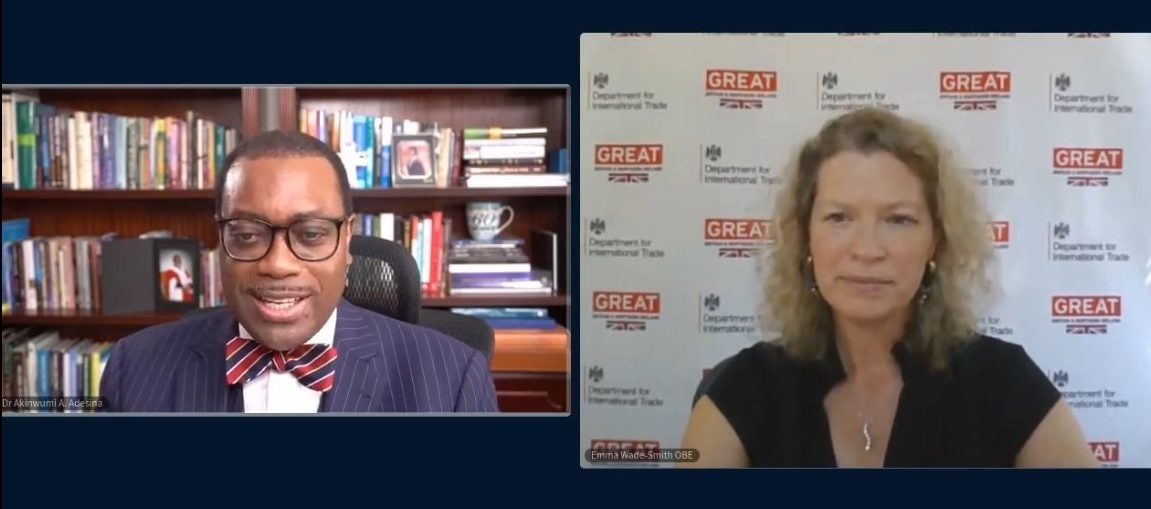The UK sounds a lot less bullish for Africa investment after Brexit and a pandemic
This time a year ago, hundreds of African business executives and officials were mingling with UK investors in a conference center in east London for the first UK Africa Summit. It was framed as the first step of a coming out party for a supposedly confident Britain reengaging and readying for life after Europe.


This time a year ago, hundreds of African business executives and officials were mingling with UK investors in a conference center in east London for the first UK Africa Summit. It was framed as the first step of a coming out party for a supposedly confident Britain reengaging and readying for life after Europe.
But the coronavirus emergency hit the UK harder than most other countries and the often fractious exit negotiations with Brussels left London with little time or energy to focus on Africa. Despite that, it has tried to maintain some momentum with another investment conference.
This year, the summit was forced online, lending a very different atmosphere to the proceedings, but that wasn’t the only difference.
At last year’s inaugural summit, the UK government boasted of £1.5 billion ($2 billion) of initiatives, including £350 million ($478 million) to develop sustainable infrastructure projects, alongside 27 commercial deals worth more than £6.5 billion ($8.5 billion). This year far was a much more restrained affair. One of the few deals was Bombardier Transportation’s deal to build two monorail lines in Cairo with $2.3 billion in support from UK Export Finance, the largest amount the export credit agency has ever given to an infrastructure project.
Infrastructure was one of four areas summit organizers wanted to focus on, alongside renewable energy, financial and professional services, and agriculture and agri-tech.
But Covid-19 and Brexit were the real underlying issues which set the framework for discussions. Coronavirus has caused investment and other economic activity in Africa to fade, while the UK’s exit from the European Union means London needs to build up trading links with other partners to make up for the slump in imports and exports to its closest neighbors.
The UK has managed to roll over the EU’s trade deals with 15 African countries to date, accounting for £21.4 billion ($29.2 billion) of annual trade. Arrangements with other important partners such as Algeria and Ghana remain under discussion. The UK has also adopted the EU’s generalized scheme of preferences, which gives 35 African countries reduced or zero tariffs for exports to the UK.
However, the shrinking African economy dents the opportunities somewhat. Africa’s economy contracted by 2.1% in 2020, according to African Development Bank (AfDB) president Akinwumi Adesina, although it is expected to recover to 3.4% growth this year as the global economy emerges from the pandemic.
In the face of all these issues, the UK government did its best to maintain an optimistic tone. In his statement to open this year’s event, UK prime minister Boris Johnson says “one thing that absolutely has not changed is my ambition for the UK to be Africa’s investment partner of choice. The UK has a huge role to play in realizing long-term prosperity for all African nations.”

Even so, the overall tone was less upbeat than last year. ““Before the start of the Covid crisis, UK business investment in Africa was on an upward trend,” says investment minister Lord Grimstone. “2020 has been a very difficult year.” And while he said the deals announced at last year’s summit “have all survived” despite the pandemic, there was no mention of the value of deals signed at this year’s event.
There were many sobering reflections on the impact Covid has had on the continent. “We believe things will get worse before they get better, that supply chains will get strangled and economies will get more stretched,” says Nicolas Oliver, business development director at UK-based NMS Infrastructure, which specializes in social infrastructure.
But others offered a more positive spin. “Africa’s growth story has been slowed by the Covid-19 pandemic but it has not been derailed,” says Sola David-Borha, chief executive of the Africa region at Standard Bank, the continent’s largest bank. “The underlying structural drivers remain firmly in place. The cup is half full not half empty.”
Some at least are still investing, including CDC, which invested more than $1 billion in Africa last year and plans to do the same this year. “The role of development finance institutions is to be counter-cyclical. It is to step forward when others are stepping back. When you have any form of financial crisis, mainstream investors take risk off and that’s certainly what happened in Africa. We saw a massive withdrawal in capital. Our role was to step forward,” said its CEO Nick O’Donohoe.
UK Export Finance CEO Louis Taylor said it has 11 major projects in the pipeline for Africa, worth £4.2 billion ($5.7 billion), in sectors including renewable energy, construction, and healthcare. “Coronavirus has put the brakes on many of our aspirations” he said, but added “We have a very strong risk appetite for many African countries.”
Nonetheless, the way the UK invests in Africa still leaves room for improvement, according to some observers and, once the gloom of Covid finally lifts, there is much for it to do if it is to meet Johnson’s ambitions of being the partner of choice.
“The trade between the UK and Africa requires a boost, because it is has gone down quite significantly,” says Adesina, adding “Foreign direct investment from the UK is highly concentrated in Nigeria, Ghana, South Africa, Morocco, and Algeria. Trade has to be diversified, but also foreign direct investment has to be diversified.”
Sign up to the Quartz Africa Weekly Brief here for news and analysis on African business, tech, and innovation in your inbox